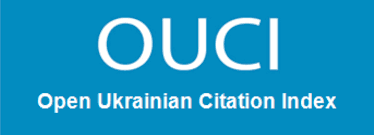STATUS OF CARBOHYDRATE METABOLISM IN DAIRY COWS WITH KETOSIS
M. Simonov1, V. Stybel1, I. Petrukh2, V. Vlizlo1,2
This email address is being protected from spambots. You need JavaScript enabled to view it.
1National University of Veterinary Medicine and Biotechnologies named after S. Gzhytsky,
50 Pekarska str., Lviv 79010, Ukraine
2Institute of Animal Biology NAAS,
38 V. Stusa str., Lviv 79034, Ukraine
This paper contains analysis of carbohydrate metabolism and hormonal regulation of energy metabolism in ketotic cows. It has been revealed that glucose concentration in blood was lower by 29.3 % (P<0.01) in comparison with healthy animals, which is a result of imbalance between energy income with food and energy expenditure for metabolic processes and milk synthesis. Under energy deficit conditions in organism of diseased cows insulin level decreased by 54.7 %, (P<0.01) and cortisol level increased by 41 % (P<0.01). This shows evidence of gluconeogenesis intensification by means of lipolysis and proteolysis. At the same time, plasma level of ketogenic amino acids was higher and level of glycogenic amino acids was lower: the concentration of phenylalanine, tyrosine and leucine increased by 22.2 % (P<0.05), 3.8 % and 62.5 % (P<0.01), respectively, and the level of alanine, arginine and asparagine decreased by 19 %, 32.8 % and 30.2 % (P<0.05), respectively, in comparison with healthy animals. The obtained results suggest alteration of ketone bodies usage by muscle tissue in the function of energy material. The animals with disease experience intensified lipid oxidation and usage of ketogenic amino acids, which results in compensation of energy deficit, but leads to accumulation of ketone bodies in blood.
Keywords: COWS, KETOSIS, GLUCONEOGENESIS, CARBOHYDRATE METABOLISM, AMINO ACIDS, INSULIN, CORTISOL
-
Annison E. F., Bryden W. L. Perspectives on ruminant nutrition and metabolism Nutrition Research Reviews, 1999, vol. 12, issue 1, pp. 147–177. DOI: 10.1079/095442299108728866.
-
D’Mello J. P. F. Amino Acids in Animal Nutrition. Edinburgh (UK), CABI Publishing, 2003, 526 p. DOI: 10.1079/9780851996547.0000.
-
Lee H. H., Kida K., Miura R., Inokuma H., Miyamoto A., Kawashima C., Haneda S., Miyake Y.-I., Matsui M. Slow recovery of blood glucose in insulin tolerance test during the prepartum transition period negatively impacts the nutritional status and reproductive performance postpartum of dairy cows. Journal of Veterinary Medical Science, 2012, vol. 74, issue 4, pp. 457–464. DOI: 10.1292/jvms.11-0302.
-
Levchenko V. I. (ed.), Vlizlo V. V., Kondrakhin I. P. Internal diseases of animals. Bila Tserkva, 2001, P. 2, 544 p.
-
Levchenko V. I. (ed.), Vlizlo V. V., Kondrakhin I. P. Internal diseases of animals. Bila Tserkva, 2015, P. 2, 610 p.
-
Petrukh I. M., Simonov M. R., Vlizlo V. V., Kaplinskyi V. V. Concentration of cortisol and ketogenic amino acids in cows blood for the treatment of ketosis. Scientific and technical bulletin of State Scientific Research Control Institute of Veterinary Medical Products and Fodder Additives and Institute of Animal Biology, 2017, vol. 18, issue 2, pp. 165–169.
-
Vlizlo V. Hormonal status in the affected cows with ketosis. Hungarian Veterinary J., 2015, vol. 137, issue 1, pp. 331−334.
-
Vlizlo V., Petruh I., Simonov M., Slivinska L. Hormonal regulation of energy metabolism in ketotic cows. XVIII Middle-European Buiatrics Congress, Eger (Hungary), 2018, pp. 294−298.
-
Vlizlo V. V., Simonov M. R., Hultiaieva O. V. Lipomobilization syndrome in dairy cows. Veterinary Medicine of Ukraine, 2014, vol. 11, pp. 23–26.














